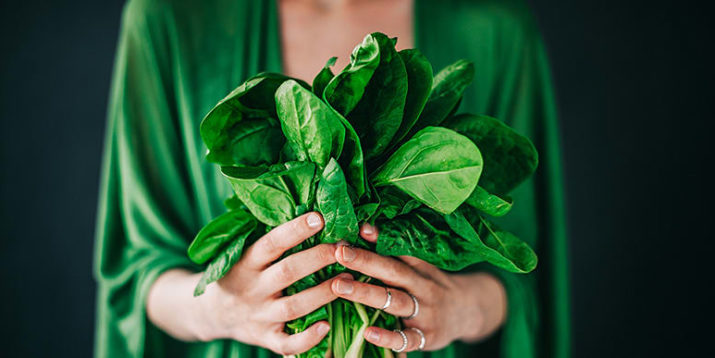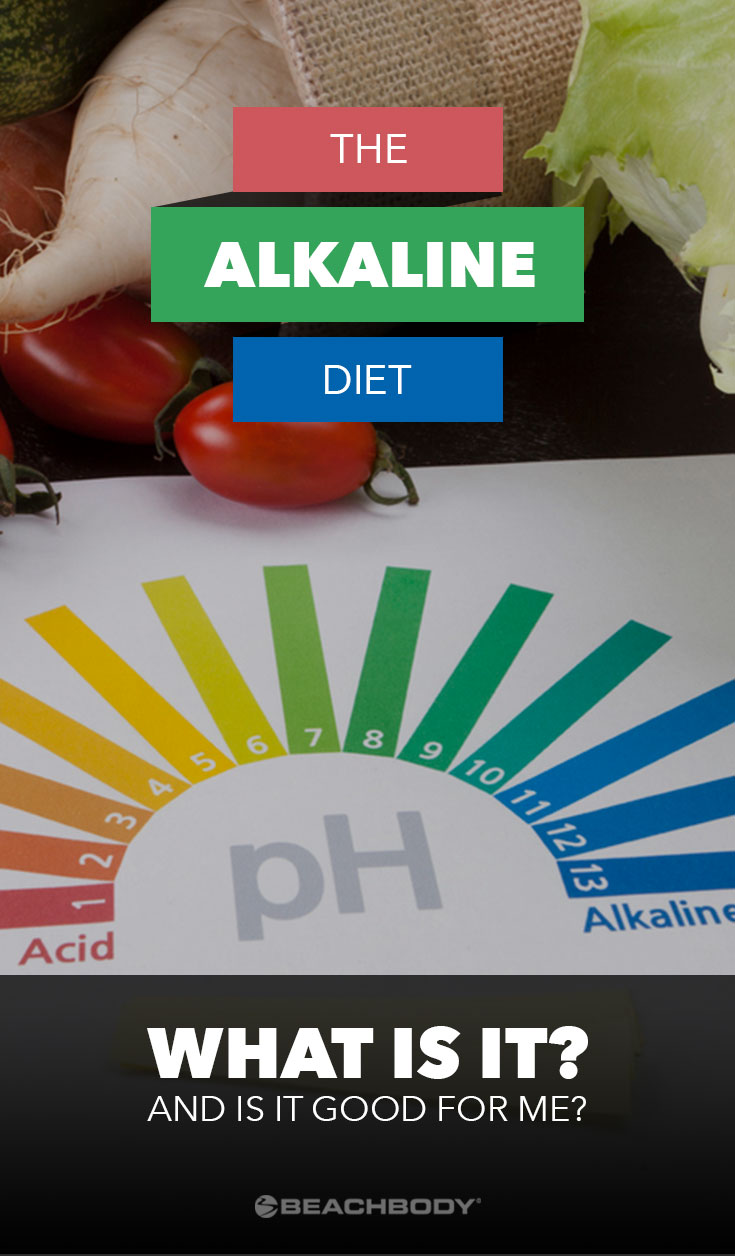What is the Alkaline Diet?

At the end of the day, an alkaline diet is just a fancy, holistic way of saying, “Eat your vegetables.” The holistic theory is that a diet filled with alkaline-promoting foods, particularly produce, will help your body’s acid/alkaline balance, leading to all kinds of benefits, including a healthy metabolism, cardiovascular system, immune system, and skeletal system. The holistic view behind this practice makes sense. The research and evidence basis, however, is still a mixed bag.
That said, there are some groovy emerging studies in favor of the practice and whether you take stock in holistic medicine or not, alkaline diets are high in real, nutrient-rich foods, and low in refined sugar and chemicals — so you got nothin’ to lose by trying one.
Alkalinity and Acidity in Your Body
Our bodies exist in a constant balancing act between internal acids and bases. This is measured by a little ditty you may remember from Chem 101 called the pH Scale, with 1 being super acidic and 14 being super alkaline. Different parts of our bodies vary in their acidity, but we’re happiest with an overall slightly alkaline internal pH balance of about 7.35 to 7.45. If that number drops below 7.35, this means you’re in a state of acidosis.
Before we go any further, you might be thinking, “Acid is bad news, man! How’d that stuff even get in there?” Well, relax. Acids and acidic environments are crucial to life. Amino acids, fatty acids, and deoxyribonucleic acid (DNA) are examples of acids important to your health. Heck, your stomach is just a meat bag filled with hydrochloric acid featuring a pH around 3.5 — but without it, you couldn’t break down food.
The lungs and kidneys are the two major players in controlling pH. There are a few forms of acidosis, but they can be lumped into two groups: respiratory acidosis and metabolic acidosis. When it comes to diet and pH balance, let’s focus on the latter.
Acid In Your Food?
Again, less scary than it sounds. Some foods produce acidity in your body. Others produce alkalinity. Just because a food is “acid-forming,” it doesn’t mean you’ll get chemical burns picking it up. Most proteins are acid forming, for example. (Although, getting blisters on your fingers when you reach for the buffalo wings would be a fantastic calorie-restriction technique.)
The various alkaline diet programs tend to spin the acid (or base) load of foods in different ways, but generally speaking, animal products, including meat, eggs, shellfish, and milk, are acid forming. So are grains. Legumes are usually neutral. Nuts, fruit, tubers, mushrooms, and veggies (especially leafy greens) tend to be alkaline forming.
So if eating an alkaline diet is your goal, focus on produce. That doesn’t mean you need to avoid animal products; just make sure the bulk of your plate is filled with fruits and veggies. And if you’re going vegan, remember that protein isn’t the enemy. In fact, a study in the European Journal of Nutrition suggests that protein actually helps with kidney function; the key isn’t to eliminate it as much as it is to balance it out with more alkaline-forming foods.
But Is Eating an Alkaline Diet Beneficial?
In Western medicine, the current, conventional wisdom is that unless something goes catastrophically wrong, you don’t need to worry about acid/alkaline balance because your kidneys sort everything out. “At the end of the day, our bodies have to regulate our acid-base balance in order for us to survive,” notes Dawn Jackson Blatner, a registered dietician and author of The Flexitarian Diet. “There’s no reason for anyone to freak out about it.”
On the other (holistic) hand, why put your body under undue stress? The harder you work any machine, the sooner it’ll break down. Dr. Russell Jaffe, MD, PhD, CCN argues that forcing your kidneys and immune system to deal with excess acids too often—thanks to poor diet choices and 21st century toxicity — causes reduced immunity and an inflammation-inducing stress-state. “Allowing repair deficits known as inflammation to persist is like your body running a marathon every day, “ insisted Dr. Jaffe, author of The Alkaline Way. ”Could you do that? Could you run a marathon every day?”
And even beyond Western medicine’s “In Kidneys We Trust” credo, there is some science indicating that the crazy acid-fest in the typical Western diet may have a negative impact on health. A review in the journal Clinical Nutrition states that, “High dietary acid load is more likely to result in diabetes and systemic hypertension and may increase the cardiovascular risk.” The review also notes that while the kidneys work to balance acidity and dispose of byproducts of this process in urine, this drives down the pH of said urine, which may increase the likelihood of uric acid kidney stones. (Ouch.)
A separate review from Bastyr University, an alternative medicine university, published in the British Journal of Nutrition points out that “available research makes a compelling case that diet-induced acidosis is a real phenomenon, has significant clinical relevance, may largely be prevented through dietary changes, and should be recognized and treated.”
A more controversial claim from the pro-alkaline diet set is that a more acidic diet pulls alkalinizing minerals from your bones, which may weaken them. The science isn’t clear on this one. In fact, an abstract in the Journal of Bone Mineral Metabolism (yes, that’s a real journal) hypothesizes that, when combined with high calcium intake, an acid-producing diet may actually protect bones, given the importance of protein, sodium, and phosphorous in bone formation.
That said, a few studies indicate that an alkaline diet — particularly one filled with potassium — may help preserve muscle mass in women and older people — and strong skeletal muscle plays an important role in protecting bones.
But keep in mind that avoiding a high dietary acid load isn’t a weekend project. While there’s no shortage of great nutrition plans out that teach you how to balance alkaline and acid, keep in mind that truly addressing the issue requires a long-term nutritional strategy. “If you eat whole foods you can digest, assimilate, and eliminate without immune burden, you will be in alkaline balance,” says Jaffe. But you’ll need to keep it up to maintain that balance.
Regardless of the science, the most compelling reason to try some type of alkaline diet is that there’s no compelling reason not to. The benefit of eating plenty of plants is almost undisputed across the dietary dogma spectrum — from Paleo to vegan. “It’s common sense,” says Blatner. “Regardless of whether it does or doesn’t change your pH, here’s what we know: People who eat this way are going to be healthier than the people who don’t.”

